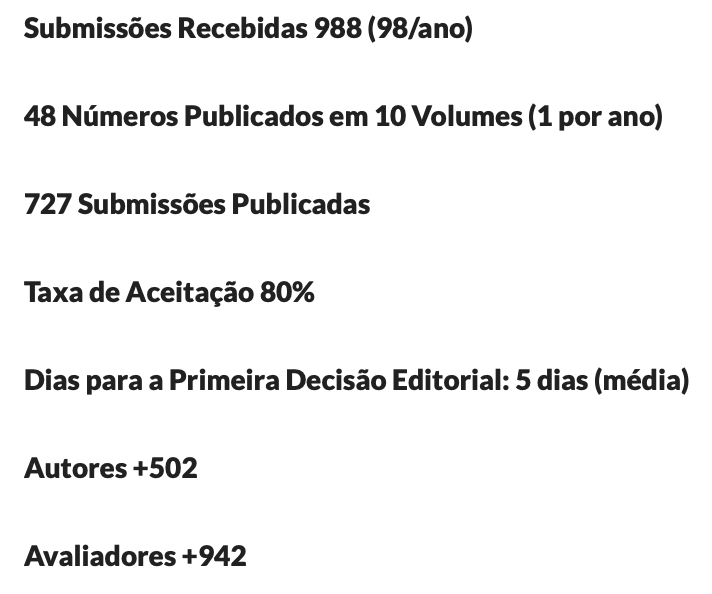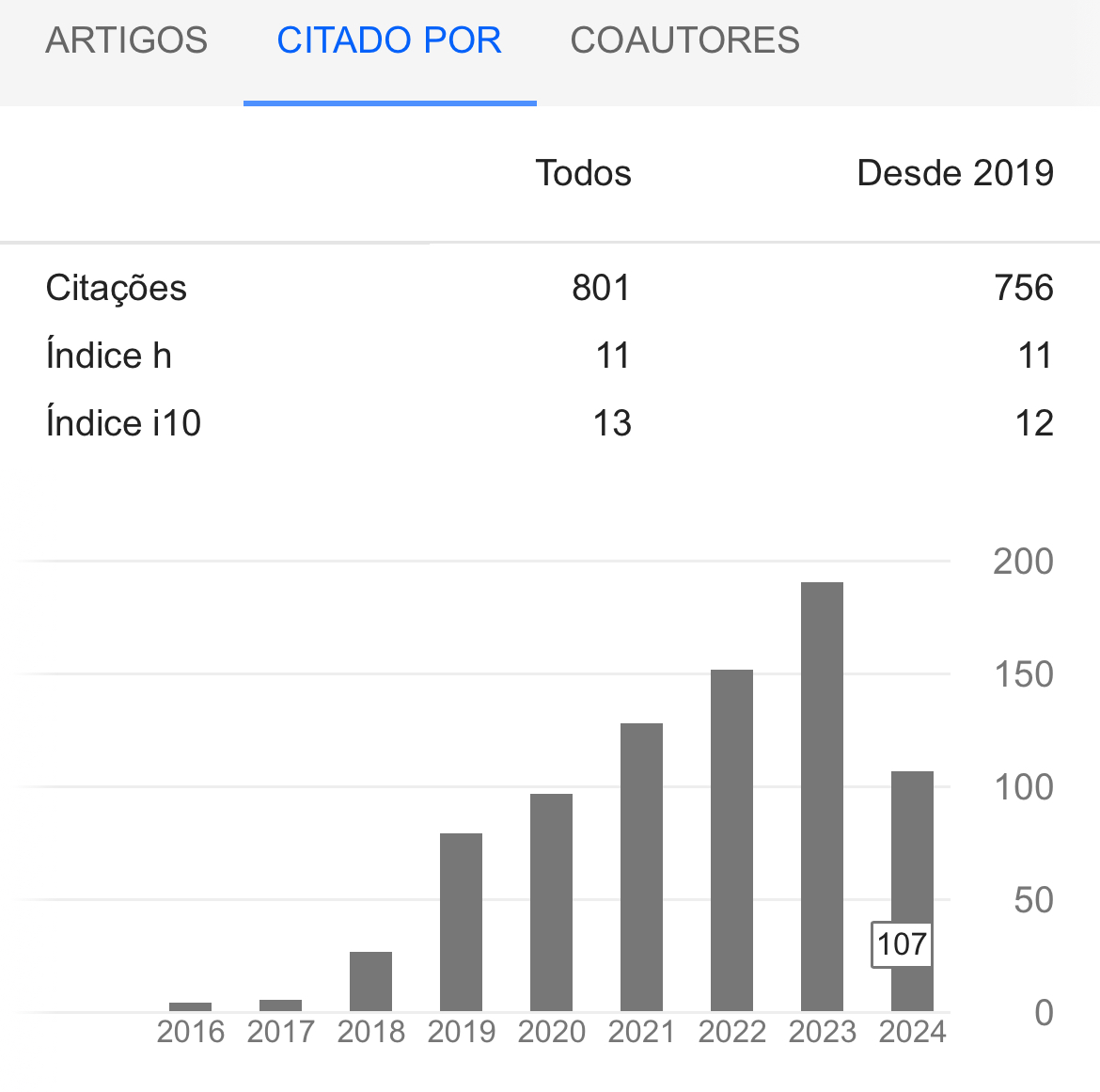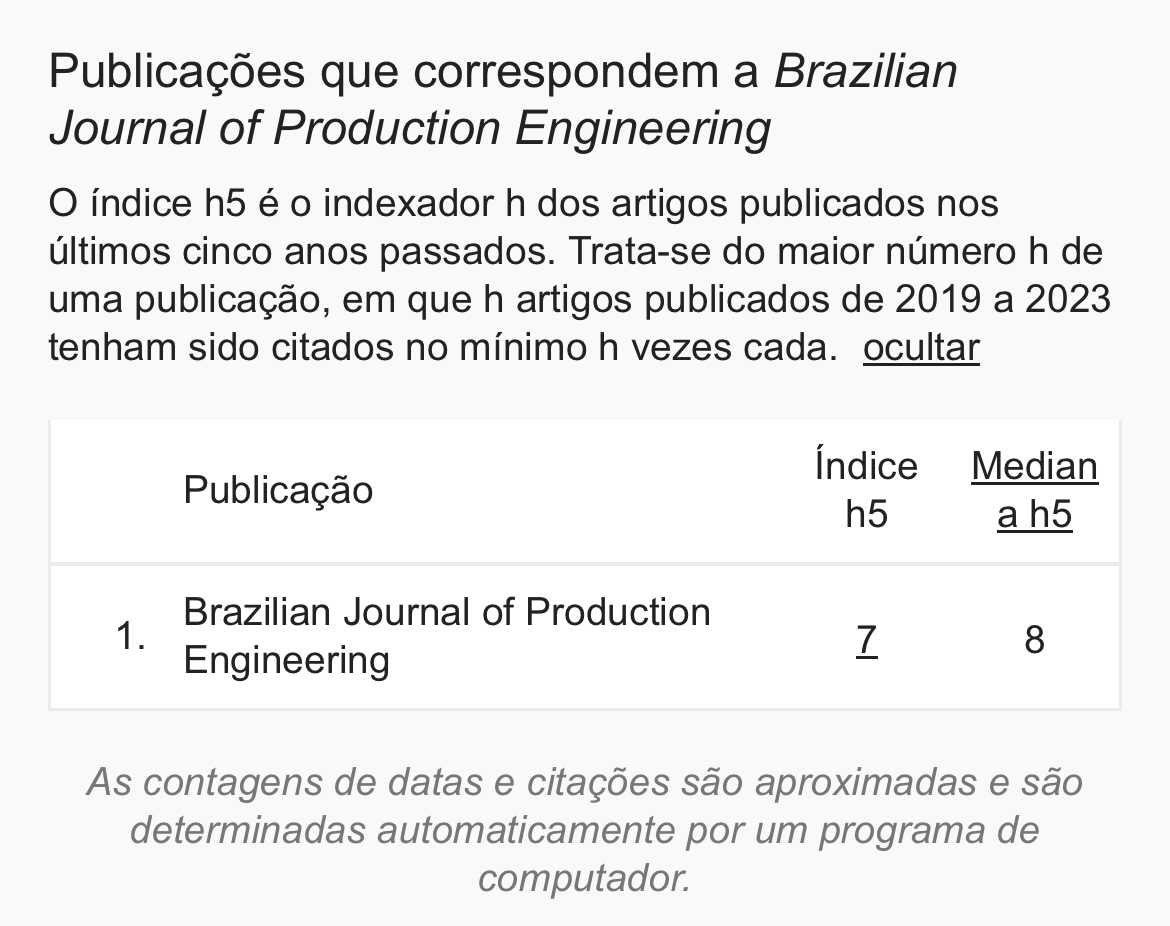SUSTAINABILITY: FLOOR WATERPROOFING FEASIBILITY STUDY AND RAINWATER REUSE IN A TEXTILE INDUSTRY
SUSTENTABILIDADE: ESTUDO DE VIABILIDADE DE IMPERMEABILIZAÇÃO DE PISOS E REUTILIZAÇÃO DE ÁGUA DE CHUVA EM UMA INDÚSTRIA TÊXTIL
Palavras-chave:
Reutilização de água, responsabilidade ambiental, pintura epóxi, Sustentabilidade, água da chuva, indústria têxtilResumo
This work addresses the importance of the conscious use of water in the business environment, a theme that has been the target of great repercussion in the organizational environment, focusing mainly on the aspects of rainwater reuse and the reduction of its consumption in the process through waterproofing. The objective of the work is to minimize production costs with environmental responsibility. Through meteorological studies, a satisfactory rate of rain was identified in the region where the company is located, allowing rainwater harvesting to be used in production. Subsequently, the study was carried out to make the catchment project viable, which, after management approval, a pilot test was developed to measure the results of rainwater reuse. A small area of the floor was waterproofed to assess the infiltration rate. It was thus identified that, in the months of greater precipitation, the company becomes self-sufficient in the use of water, this is due to the waterproofing of the floor with epoxy paint, which had significant and consistent effects as expected. As a result of satisfactory testing, training was provided to raise employee awareness. The project is undergoing simulations and it is estimated that the results are significant for the company.
Downloads
Referências
Ahmed, T. F., Shah, S. U. S., Khan, M. A., Afzal, M. A., & Sheikh, A. A. (2020). Rainwater harvesting scenarios and its prospective in Pakistan. Meteorology Hydrology and Water Management. Research and Operational Applications, 8.
Alencar, C. N. D. (2018). Direito à Água (Doctoral dissertation, Universidade de Coimbra).
Almeida, R., Lopez, J. A. P., & Abreu, R. (2019). Water as a Public or Private Good: The Future of Water in Portugal. In Responsible Business in Uncertain Times and for a Sustainable Future (pp. 129–143). Springer.
Barbosa, T. da C. (2018). Cooperação pelas águas: uma estratégia de gestão hídrica frente aos conflitos motivados pela escassez. 2018. 23 f. Trabalho de Conclusão de Curso (Graduação em Relações Internacionais) – Departamento de Filosofia e Ciências Humanas, Universidade Federal do Amapá, Macapá. Disponível em: http://repositorio.unifap.br:80/jspui/handle/123456789/636. Acesso em: 20/06/2018
Bhushan, B. (2019). Bioinspired water collection methods to supplement water supply. Philosophical Transactions of the Royal Society A, (pp. 1-151) 377(2150), 20190119.
Coelho, S. M. de M. (2019). Avaliação da efetividade de programa por meio de modelo lógico: um estudo da reunião pública da diretoria da Agência Nacional de Energia Elétrica (Aneel). 140 f. Dissertação de mestrado (PósGraduação em Administração). Faculdade de Economia, Administração, Contabilidade e Gestão de Políticas Públicas – FACE. Disponível em: https://repositorio.unb.br/handle/10482/35879. Acesso em: 14/05/2018
de Oliveira Cunha, A. (2011). O estudo da tinta/textura como revestimento externo em substrato de argamassa.
do Carmo Pereira, G., de Aquino, L. R., de Oliveira, F. F., & da Cunha, L. T. (2019). Uso sustentável da água nos processos de obtenção de matéria-prima vegetal e fabricação alimentícia: um estudo de revisão. Revista Agroveterinária Do Sul de Minas, 1(1), 26–40.
dos Santos, A. A., Fagundes, C. H., Rodrigues, T. V., Sanjulião, L.-R. K. A. F., de Paula Borges, V. J., & Reis, M. J. (2019). Segurança no trabalho de catadores de reciclados/Work safety of recyclers. Brazilian Journal of Business, 1(2), 698–710.
Grm, K., Štruc, V., Artiges, A., Caron, M., & Ekenel, H. K. (2017). Strengths and weaknesses of deep learning models for face recognition against image degradations. Iet Biometrics, 7(1), 81–89.
Han, D.-H., & Kang, L.-H. (2018). Piezoelectric characteristics of PNN-PZT/epoxy paint sensor according to the poling conditions. Sensors and Actuators A: Physical, 269, 419–426.
Li, J.-L., Sun, D.-W., Pu, H., & Jayas, D. S. (2017). Determination of trace thiophanate-methyl and its metabolite carbendazim with teratogenic risk in red bell pepper (Capsicumannuum L.) by surface-enhanced Raman imaging technique. Food Chemistry, 218, 543–552.
Loureiro, D., Moreira, M., Alegre, H., Cunha, H., Arranja, C., & Rijo, M. (2018). Proposta de balanço hídrico para diagnóstico de perdas de água em Aproveitamentos Hidroagrícolas.
Melo, Í. K. M. C. de, & Costa, J. M. S. (2018). Aproveitamento de água pluvial para fins potáveis no povoado de Serrotinho: estudo de caso em Ouro Branco–Alagoas.
Miguel, P. A. C. (2007). Estudo de caso na engenharia de produção: estruturação e recomendações para sua condução. Production, 17(1), 216–229.
Missimer, T. M., & Maliva, R. G. (2018). Environmental issues in seawater reverse osmosis desalination: Intakes and outfalls. Desalination, 434, 198–215.
Panini, A., & Tavares, M. B. (2016). Aproveitamento de água da chuva para fins não potáveis. 52 f. Trabalho de Conclusão de Curso (Graduação em Engenharia Civil). Centro Universitário Toledo - UNITOLEDO. Disponível em: http://www.unitoledo.br/repositorio/handle/7574/247. Acesso em: 20/04/2018
Pedrangelo, A. D. C. S. (2017). Avaliação de um sistema residencial para coleta de água de chuva. 57 f. Dissertação de Mestrado (PósGraduação em Tecnologias Limpas). Centro Universitário de Maringá, UNICESUMAR. Disponível em: http://rdu.unicesumar.edu.br/xmlui/bitstream/handle/123456789/1044/ALESSANDRA%20DE%20CASTRO%20SILVA%20PEDRANGELO.pdf?sequence=1&isAllowed=y. Acesso em: 14/08/2018
PERDOMO, Carolina Verbicaro. Influência das propriedades físico-mecânicas e hídricas do solo na susceptibilidade a escorregamentos em vertente declivosa na Serra do Mar em Ubatuba, São Paulo. 2010. 138 p. Dissertação (mestrado) - Universidade Estadual de Campinas, Instituto de Geociências, Campinas, SP. Disponível em: <http://www.repositorio.unicamp.br/handle/REPOSIP/287323>. Acesso em: 16 ago. 2018.
Rauter, R., Jonker, J., & Baumgartner, R. J. (2017). Going one’s own way: drivers in developing business models for sustainability. Journal of Cleaner Production, 140, 144–154.
Rodrigues, F. D. E. J. D. E. C. (2018). Importância da análise de confiabilidade em sistema elétrico de distribuição para a qualidade da energia elétrica. 43 f. Trabalho de Conclusão de Curso (Graduação em Engenharia Elétrica). Faculdade Pitágoras de São Luís. Disponível em: https://repositorio.pgsskroton.com//handle/123456789/25255. Acesso em: 15/08/2018
Rodrigues, T. V., de Jesus, R. G., & Oliveira, N. P. (n.d.). A importância do gerenciamento de projetos para pequenas e médias empresas. Gestão e Desenvolvimento Em Revista, 5(1), 4–12.
Rodrigues, T. V., de Jesus, R. H. G., Oliveira, N. P., Sanjuliao, L.-R. K. A. F., Reis, M. J., Reis, F. M. D., & Miranda, P. C. R. (2019). Modelo para redução no tempo de carregamento, utilizando técnicas de modelagem e simulação/Model for reduction in loading time, using modeling and simulation techniques. Brazilian Journal of Development, 5(11), 25386–25401.
Sanjulião, L.-R. K. A. F., & Godinho, R. F. (n.d.). Proposta de implantação da produção mais limpa baseada no perfil do setor de confecção do município de passos/mg quanto às práticas de sustentabilidade ambiental. Sustentabilidade e Responsabilidade Social, 141.
Sayl, K. N., Mohammed, A. S., & Ahmed, A. D. (2020). GIS-based approach for rainwater harvesting site selection. IOP Conf. Series: Materials Science and Engineering, 737, 12246.
Souza, J. F., Neto, M. R. F., Souza, M. A. S., & Veneu, D. M. (2016). Aproveitamento de água de chuva para usos não potáveis na Universidade Severino Sombra. Revista Eletrônica TECCEN, 9(1), 35–46.
Thomé, A. C. B., Santos, P. G., & Fisch, A. G. (2019). Using rainwater in cooling towers: Design and performance analysis for a petrochemical company. Journal of Cleaner Production, 224, 275–283.
Torknezhad, Y., Khosravi, M., & Assefi, M. (2018). Corrosion protection performance of nanoparticle incorporated epoxy paint assessed by linear polarization and electrochemical impedance spectroscopy. Materials and Corrosion, 69(4), 472–480.
TWDB. (2017). Water for Texas—2017 State Water Plan. Texas Water Development Board Austin, TX.
Verplanken, B., & Roy, D. (2016). Empowering interventions to promote sustainable lifestyles: Testing the habit discontinuity hypothesis in a field experiment. Journal of Environmental Psychology, 45, 127–134.
Xu, W. D., Fletcher, T. D., Duncan, H. P., Bergmann, D. J., Breman, J., & Burns, M. J. (2018). Improving the multi-objective performance of rainwater harvesting systems using real-time control technology. Water, 10(2), 147.
Zmozinski, A. V, Peres, R. S., Freiberger, K., Ferreira, C. A., Tamborim, S. M. M., & Azambuja, D. S. (2018). Zinc tannate and magnesium tannate as anticorrosion pigments in epoxy paint formulations. Progress in Organic Coatings, 121, 23–29.
Downloads
Publicado
Como Citar
Edição
Seção
Licença
Copyright (c) 2020 Brazilian Journal of Production Engineering - BJPE

Este trabalho está licenciado sob uma licença Creative Commons Attribution-NonCommercial-ShareAlike 4.0 International License.

Atribuição 4.0 internacional CC BY 4.0 Deed
Esta licença permite que outros remixem, adaptem e desenvolvam seu trabalho não comercialmente, contanto que eles creditem a você e licenciem suas novas criações sob os mesmos termos.










































































